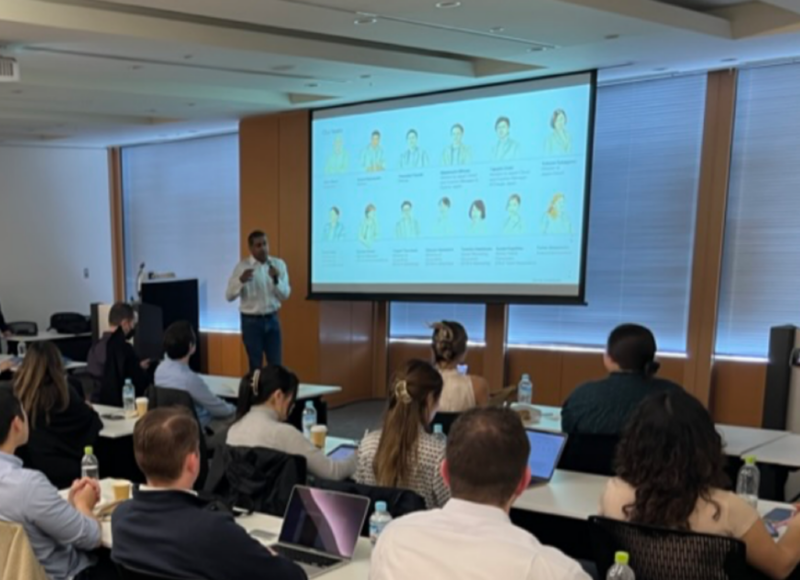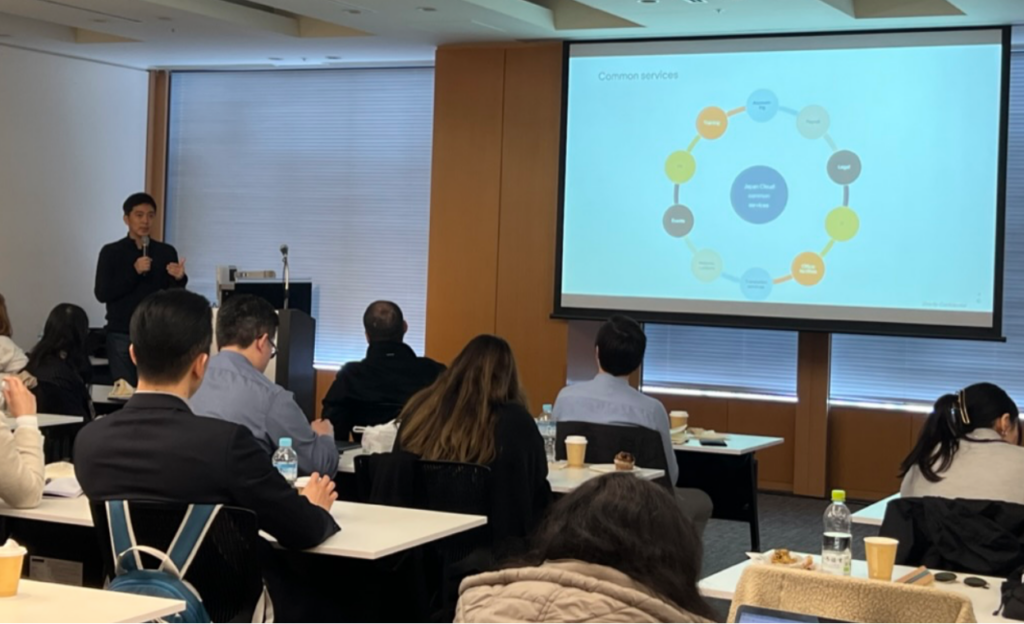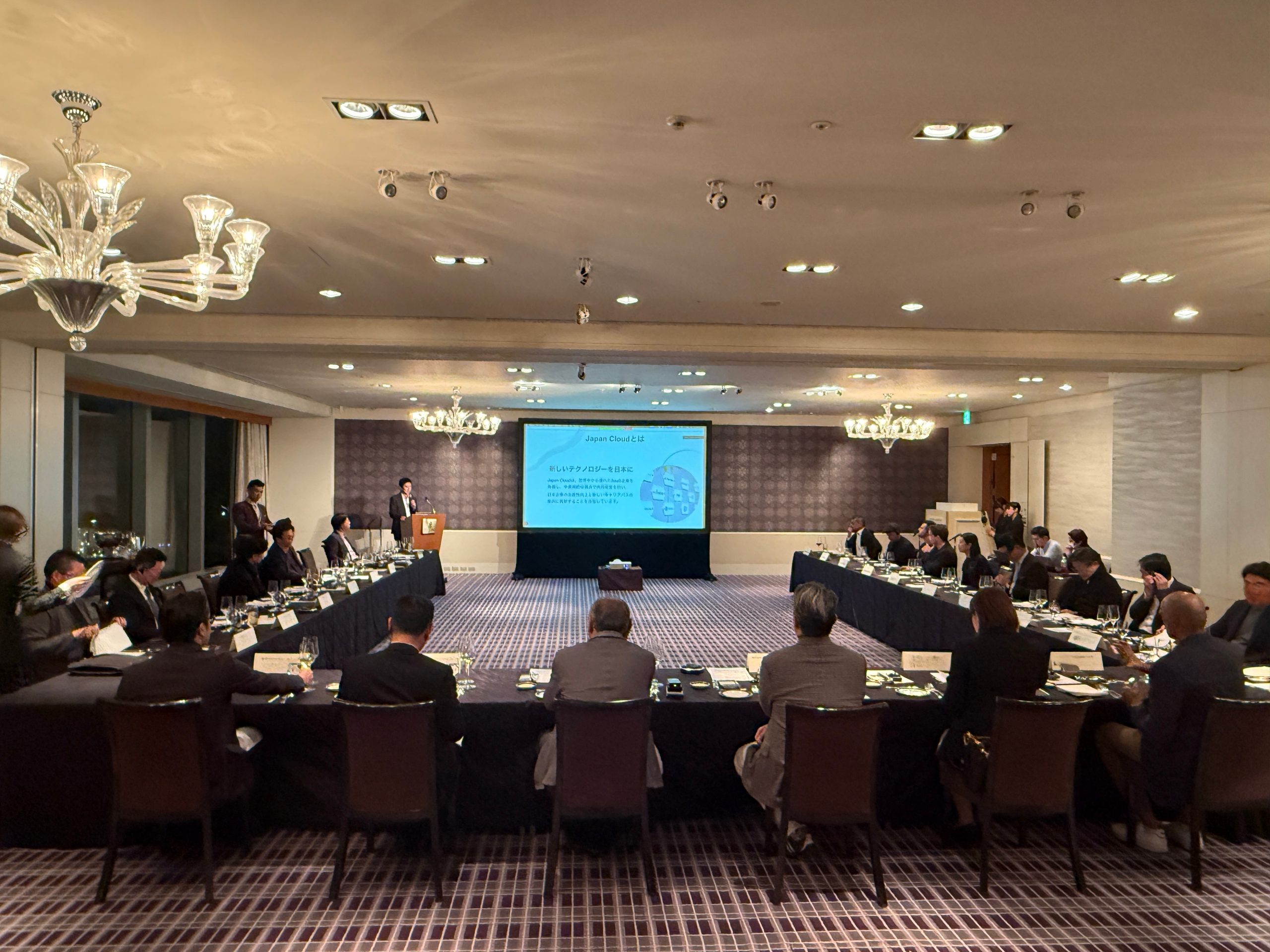Japan Cloud Hosts Q&A Session with UCLA MBA Students

On behalf of the Japan Cloud team, I want to express my sincere thanks to Prof. Mariko Sakakibara at UCLA and her MBA students from the Anderson School of Management who visited us recently at our offices in Tokyo. The group was in Japan meeting with a number of companies as part of their participation in the school’s Global Immersion Program. It was a great honour to be included among Japan’s iconic firms.
For the meeting, Yasu Fukuda and I presented to the students on Japan’s SaaS market, the challenges that global SaaS companies face when entering Japan and how Japan Cloud addresses their challenges. We met with the students for close to two hours. We fielded a barrage of excellent questions which I thought would be of interest to SaaS companies with an eye on Japan. I hope the answers are equally valuable. We kept the number of questions to under 10 for brevity’s sake. The questions and answers have been edited for clarity.
How has the downturn in the US tech industry impacted Japan?
Aruna: Amazingly, it hasn’t. Unlike in the U.S., Japan Cloud’s partners are actually adding people in Japan. This is because Japanese corporations are investing heavily in SaaS. Now more than ever, they need to do more with less, and SaaS is a great enabler of productivity.
I am constantly having to tell our investors how the Japanese economy continues to be stable in terms of inflation, interest rates and GDP growth. Even the most recent Tankan survey, which is a quarterly survey conducted by Japanese businesses that reflects the health of the economy, points to further investment in IT.

What is the Japan Cloud business model?
Aruna: We structure the business so Japan Cloud’s incentives are 100 percent aligned with our partners’ to build recurring revenue in Japan. We invest alongside the parent in the Japan entity (and only in the Japanese entity) and we realize our return in 8-10 years based on the growth of the Japan business. The exit terms are locked in at the time we sign the partnership so they are crystal clear and fair.
From an operations standpoint, governance by the board of directors of the Japanese subsidiary plays an important role in the Japan Cloud model. Generally, with the Japanese subsidiaries of many foreign IT companies, the general manager reports to HQ or the head of sales for the Asia-Pacific region. At Japan Cloud, day-to-day business execution and operations are delegated to the general manager, while several management team members from headquarters-including the CEO, CFO, and CRO-and Japan Cloud participate as board members of the Japanese corporation, discussing topics such as strategy, financial targets, resource allocation, and human resource development.
Why not go direct?
Aruna: Many companies have gone direct, but their growth often falls short of expectations.
Yasu: Poor talent acquisition and GTM are the common mistakes that companies going direct make. Companies come to Japan Cloud because they want to lower the risk of making these mistakes, even if that entails sharing some of the upside with us over the period of the partnership. There are companies that have succeeded going direct but our success rate is much higher than the direct model.
Also, bigger picture, there are many talented Japanese people who still are not accustomed to working with global Saas companies. So we find these talented people, develop and nurture them. This is part of our mission. I’m confident we acquire and develop the best talent in the industry and thus have a higher success rate.

How are sales and marketing different in Japan?
Aruna: There are differences, but the desired outcomes are the same. At the end of the day, you need to be able to explain the value and ROI of your services to customers, so the situation in Japan is not that different from that in the US. We need to be mindful of not saying that Japan is different as it often becomes an excuse for not being able to sell.
Yasu: When I was at Oracle Japan, the prevailing rhetoric was that Japan was different. There are always differences, such as in presentation style and protocol. Sales people at Oracle Japan used to say that Japanese customers require higher quality service, but when I came to the U.S. with Oracle, I learned that U.S. customers are just as demanding. It’s more productive to focus on similarities than differences and to share best practices that we have in common than to dwell on differences.
What are your main challenges and friction points?
Yasu: Everyday is a challenge. Whether it’s pipeline-building, effective marketing, closing deals in a timely way or implementation issues, there is always something. Addressing challenges is what we do. That’s just the nature of business.
Governance is also key. How to balance local autonomy with global alignment is a perennial challenge. How to harmonize local and global is something we are always working on.
Aruna: The issue is, how quickly can you bring issues out into the open and address them decisively and transparently. We are very hands-on so we can uncover and address problems earlier and provide immediate feedback and solutions. We have very good relationships with the parent company. Transparency builds trust.
How do you manage competitive situations?
Aruna: We do not work with our partners’ competitors. We can’t have competitors working on the same floor, in the same office. So I say no to companies that are interested in working with us.
Also, the network effect amongst our partners is a key benefit of working with Japan Cloud.
What are the SaaS categories you want to focus on?
Aruna: DevOps is very interesting to us as we have built a large customer base through our New Relic, PagerDuty and Braze operations. Today, I believe we have direct access to over 100,000 developers in Japan.
We’d also like to challenge regulated industries, such as healthcare, real estate and construction, as we believe SaaS could boost their productivity dramatically.
What are the data residency requirements for Japan?
Aruna: There are no laws requiring cloud companies to have their data in Japan. All our partners have their data overseas. Some industries such as the public sector and financial services may have “guidelines” for local data residency but our partners have been able to sell to major financial institutions without any issues.




